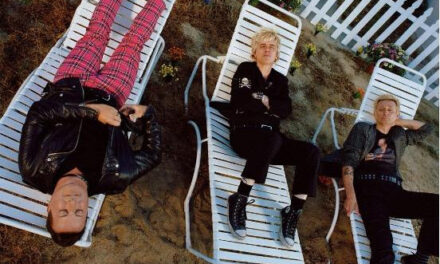It’s okay to start watching a reality television series with a healthy skepticism about what scenarios are based on fact. Who in their right mind would subject themselves to a Truman Show-esque setting where the world can see them fully, warts and all? Even in the early days of MTV’s The Real World, cameras were present, and specific edits were made to elevate drama or perhaps infer romantic liaisons more than they were for storyline purposes. I almost want to ask if people would be enthralled to watch shows mired within a mundane existence, but my answer is social media. Within any app, you can see someone chronicling their day step by step, but the same question arises in authenticity. Even with the “bad times” of emotional breakdowns, they can still feel manufactured for engagement.
The comedic world is a brave one, where some individuals have the courage to piece together their past and present traumas and present them to an audience to laugh at together (hopefully). It’s a temporary bandaid that dissolves once they leave the stage and repurposes depending on which city they go to or the material they tap into. Comedian Jerrod Carmichael’s third special, Rothaniel, had a beautiful intensity. It’s the comedian’s way of coming out as a gay man and still trying to reckon with how the world has changed: within himself, religion, and the viewpoints of the people he loves the most. Silence is the biggest punchline throughout the special. Carmichael’s Reality Show feels like a spiritual successor to Rothaniel in that he’s still trying to figure things out— in a way that appears unafraid to show the world where he falls short. We get to see his struggles with monogamy, infidelity, spirituality, parents who aren’t accepting of his lifestyle, child wounds, and friendship. At some points, Carmichael tries to assist others in his life to conquer perhaps their issues that are identical to his. But it’s messy, as one would expect. On the one hand, it’s courageous to take this route because it is when celebrities have retreated from being so open. It’s almost hard to recognize that despite the eight nearly 30-minute episodes of seemingly profound honesty, they have a particular cadence.
Almost every episode begins with Carmichael in stand-up form, speaking to the audience about what we will witness. At first, it’s the profession of his love for his best friend, Tyler, The Creator, and not knowing how to tell him. Throughout the first episode, he has to reckon with what will eventually be an uncomfortable exercise in unrequited love with a somewhat awkward discussion both have. One could understand why someone would want to conceal that, but as Carmichael says, “Cameras make me feel more comfortable.” The discomfort radiates in what Carmichael seeks to confront and extends to the people along this journey. Before venturing into what The Jerrod Carmichael Show is, there’s a discussion with an anonymous person (pretty much frequent collaborator and friend Bo Burham) about what this experiment will do. He calls out the cameras as not being a neutral eye. While Carmichael disputes it, he says he’s trying to let the “cameras be what God is.”
This is a prominent theme throughout the entire show. While many topics are explored, Carmichael’s relationship with his conservative Christian mother feels like it affects him the most. Much like he touched on Rothaniel, the comedian is trying to figure out his relationship with faith and the ways it can be used to minimize lifestyles that aren’t deemed “holy.” What do you do when that line of thinking takes hold of a parent you love dearly? The audience sees Carmichael struggle with that notion and the push-and-pull of trying to awaken someone locked into a regressive way of thinking. It’s evident in those moments that the ire of the focal point is not only meant to be drawn at Carmichael’s sometimes self-destructive behavior. Another tense discussion happens with his father on a road trip, where Jerrod confronts him about his adulterous past with his mother. Rather than being in the audience where Carmichael can speak about this situation and interject with a joke, we are almost the backing party for him to be courageous enough to confront these things. It’s a different type of therapy you shouldn’t be witnessing, but still be glad it’s addressed.
It’s not that Carmichael himself doesn’t come out unscathed; things occur that don’t necessarily show him in a flattering light. He often cheats on his boyfriend, Michael, and laments about regretting it (while doing it again). He shows up to his best friend Pooh’s wedding as the best man an hour late. Some of Carmichael’s dealings with his friends feel out of a sitcom – especially when his friend Jess moves to New York to pursue a career in acting. While he becomes perturbed with her being in his apartment, Carmichael gets Jess her own place with a lousy caveat. You have to wonder how someone could be as bad of a friend for it not to be scripted. The Jerrod Carmichael Show finds its footing when he brings a fellow comedian and longtime friend, Jamar Neighbors, on the road and tries to give him some pointers on confronting his traumas with his standup. In reality, not everybody is expected to take on Carmichael’s comedic stylings to be so open or as bold as a premise as this. Like Burham, Neighbors confronts Carmichael on that point. It’s great for people to lead you to a place of healing; however, it’s up to you to find the mode that is the most effective way to take that step.
If The Jerrod Carmichael Show is triumphant, it’s that there is no clear-cut runaway for this chapter to end as many reality shows do. The comedian has found a way to lay his burdens bare, but also realizes that life is more complicated than the controlled environment of the editing bay. Carmichael gets to love his boyfriend freely and express his sexuality around people who are accepting of him. However, there’s still the hurt of wanting his mother to love him without condition and the decree of religion not allowing her to do that. The standup segments almost serve as a coat of armor Carmichael uses like a knock-knock joke that breaks up a very awkward situation. Only this time, Carmichael sees himself as the conduit of what it means to be a person in progress.
Photo Credit: HBO













